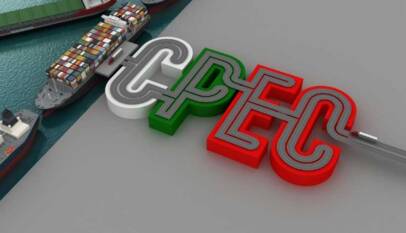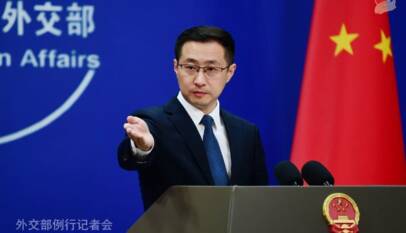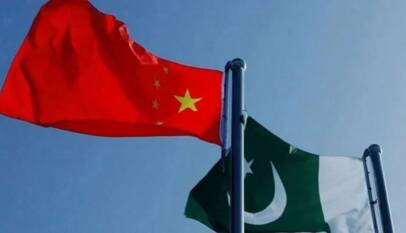Maritime cooperation under CPEC has potential to promote the blue economy of Pakistan
China Pakistan Economic Corridor (CPEC), a flagship project of Belt and Road Initiative (BRI), has driven the socio-economic development of Pakistan. CPEC offers a great opportunity to explore the potential of the blue economy of Pakistan. In addition to regional connectivity, CPEC has potential to accelerate goods and services within the country. With increased regional connectivity and maritime cooperation under CPEC, ‘blue partnership’ would help Pakistan to promote its economic growth. Owing to cooperation and opportunities offered by the Chinese government and companies under the CPEC, Pakistan needs to devise a development plan and promote coordination among stakeholders to explore the potential of the blue economy.
With a sizeable seafront, a large Exclusive Economic Zone (EEZ) and continental shelf, Pakistan is blessed with abundant marine resource potential for innovation and economic growth. It is believed that Pakistan’s maritime zones are rich in living and non-living resources. However, sea blindness, little to no public-private partnership, dearth of marine research and development (R&D) and absence of a coherent policy are some of the most important causes of underutilisation of marine resources. The need of the hour is to invest in marine R&D while generating opportunities for public-private partnership to fuel blue economy in Pakistan. The term ‘blue economy’ refers to the utilisation of sea and its resources for sustainable development. In other words, blue economy is efficient use of ocean resources for sustained economic growth, inclusive employment opportunities,better livelihood for coastal communities and exploitation of sea-based energy reserves. Seas are increasingly being understood as engines for sustainable economic growth by small island developing states (SIDS) and big oceans states alike. Since time immemorial, humans have been relying on oceans for food, transportation and therapeutic products. Today, there is a better understanding even of the non-market goods and services related to oceans. Pakistan’s maritime potential is wide and varied. The country’s 1001 kilometers long coast extends southeast and westward. The maritime area of Pakistan comprises of 240,000 square kilometers of EEZ. To this area, the extended continental shelf provides another 50,000 square kilometers. The combined area of roughly 290,000 square kilometers has an enormous natural resource potential, much of which remains unexplored. Most of the marine natural resources are untapped, overexploited or else shrinking on account of pollution.
Pakistan’s coastal zones, a mixture of subtropical environment and riverine flow in Indus delta, are rich in bio-productivity and bio-diversity. These deltaic systems of streams provide for breeding ground of commercially important fisheries including carb and shrimps with a potential resource worth USS 68 million a year. Although Pakistan’s fish export is growing but when compared to other Asian countries, the numbers are only depressing. Moreover, despite huge potential, fishing sector contribute little (1%) to Pakistan’s GDP. However, if developed for optimum exploitation, fishery sector can play pivotal role in development of rural coastal economy of the country besides creating jobs in related sectors such as processing, preserving, transporting and marketing fish and fish products.
Pakistan’s maritime zones are also rich in non-living resources such as sea-based industrial resource, deep-sea minerals and hydrocarbons. It is important to note that offshore regions of Pakistan have thick marine sedimentary reservoir rocks with potential traps of industrial chemicals and hydrocarbons. In addition, Pakistan’s marine geological environment is favourable for the formation of mineral resources. Nonetheless, sea blindness and lack of political will to invest in the maritime arena are major reasons for the absence of any serious exploratory efforts and subsequent discovery. Pakistan’s energy-starved economy and balance of payment crisis can be cured or at least mitigated in the longer run if untapped non-living resources of sea are exploited. Coastal tourism is yet another fast expanding economic sector in the world. Pakistan is blessed to have a long coastline with pristine beaches and year-long sunshine which potentially make beach tourism an attractive industry in the country. Development of sea-based recreational facilities such as quality beaches, theme parks, promenades and hotels is an avenue of public-private partnership to boost tourism and related industries while creating job opportunities for the unemployed youth. Desalination of water, utilisation of tidal and wind energy for power generation, ship construction, maintenance and repair are other areas of high potential for growth of country’s economy. Marine R&D and capacity building through encouragement of private start-ups can lead the dwindling economy of the country towards stability and progress. Chinese investment through China-Pakistan Economic Corridor (CPEC) is a golden opportunity for Pakistan to explore its “blue” options. CPEC is connecting Pakistan’s port cities to the other parts of countries through a modern network of rails and roads. This transportation network can facilitate easy and efficient movement of services, goods and human resource within the country besides connecting western China with Arabian Sea. Pakistan can capitalise on ever-increasing maritime cooperation between the two countries in order to promote “blue partnership” and can lead the country to the path of economic prosperity.
A welcome move in this regard is the decision of Prime Minister Imran khan to declare the year of 2020 as the year of blue economy. In February this year, the decision was made in the cabinet meeting chaired by the Prime Minister in the light of a report on the economic potential of oceans in the country. Moreover, the incumbent Chief of the Naval Staff has recurrently spelled out his desire to revitalise country’s maritime sector and blue economy. Annual Maritime Security Workshop (MARSEW 19) organised by Pakistan Navy War College and launch of Maritime Centre of Excellence in December last year validate Pakistan Navy’s commitment to play its part in the growth of blue economy and maritime sector of Pakistan.
Though call for promotion of blue economy is a positive step by government but development of comprehensive strategy to incentivise maritime sector through inter-ministerial coordination and broader consultation with stakeholders is required to prompt investment by private sector. In this way, the economic slowdown can be transformed into sustainable economic activity in the country.
Chinese Ambassador highlights significance of Third Plenary Session for China-Pakistan cooperation
The Third Plenary Session of the 20th Central Committee of the Communist Party of China ha…












